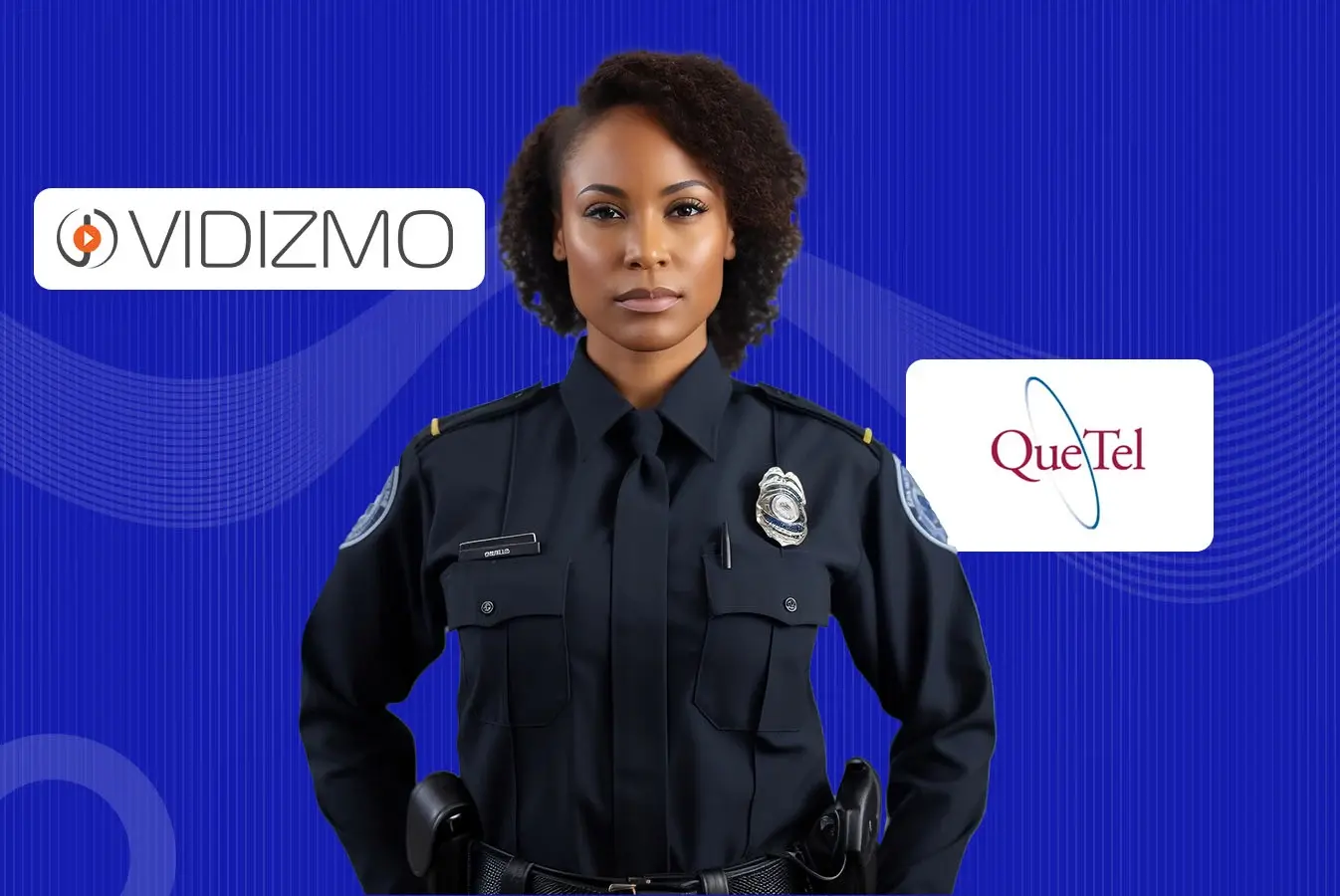Why Front & Rear Dashcams Are the Must-Have Safety Upgrade for Drivers
by Sarim Suleman, Last updated: November 14, 2024, ref:

Picture this: You’re on the road, maybe mid-commute or finishing up a delivery. Suddenly, you’re cut off, or worse, involved in an accident that wasn’t your fault. Proving it? Now that’s a different story. It’s not enough to tell your side of the story—you need evidence. And that’s precisely why dashcams have become essential, not just for individual drivers but for businesses with fleets at stake. With the rise of front and rear dashcams, drivers now have a reliable tool that offers protection, accountability, and often lower insurance premiums. But if you’re managing a fleet, handling claims, or just aiming to stay safe on the road, these cameras offer far more than a sense of security; they’re a financial and legal safety net.
Why Are Dashcams More Necessary Now Than Ever?
In today’s world, car accidents and on-road disputes are more prevalent than ever. In US, road crashes are the leading cause of death causing more than 38,000 deaths each year. Insurance fraud, often involving “crash-for-cash” schemes, costs the industry billions annually. For fleet managers and insurance companies, this can mean skyrocketing claims, higher premiums, and an uptick in liability risks. For individual car owners, it’s about peace of mind, having video proof when things go wrong. The bottom line? The current landscape of on-road risks and skyrocketing insurance costs is pushing people to install dashcams as an affordable, reliable solution.
High Insurance Costs and Fraudulent Claims
The cost of auto insurance has climbed more than 20% since 2023, partly due to the rise in fraud and preventable accidents. Insurers are tightening policies, but claims continue to flood in. For fleet managers, these costs impact operating budgets directly. For individual drivers, it’s often a headache to prove innocence in a minor fender bender.
Limited Accountability on the Road
Without clear evidence, fault in accidents often relies on subjective reports and unreliable eyewitness accounts. Fleet managers struggle to hold drivers accountable for minor incidents or confirm how accidents occurred. For law enforcement, there’s also the struggle to provide reliable proof in high-stakes cases.
Public Safety Concerns
For law enforcement and commercial drivers, dashcams have become a crucial tool in promoting transparency. Dashcams protect officers from unfounded complaints, bolster community trust, and provide critical evidence in investigations.
The Unseen Costs of Not Having a Dashcam
Imagine the financial strain, reputational damage, and stress that come with a preventable on-road incident. Fleet managers not only face escalating insurance premiums but also bear the indirect costs of downtime, replacement vehicles, and potential lawsuits. In some cases, drivers without evidence could be forced to pay out-of-pocket for damages or even lose their job due to misunderstandings or false claims.
For an insurance adjuster, fraud is more than just paperwork—it’s a drain on resources. Every time a claim is processed based on a he-said-she-said scenario, there’s room for error. Similarly, law enforcement agencies facing scrutiny from the public need dashcam footage to maintain transparency. Each of these issues boils down to the absence of reliable evidence that dashcams can readily provide.
Why Front and Rear Dashcams Are the Solution
Dashcams offer a real, tangible solution to these escalating problems, providing peace of mind and a wealth of benefits across the transportation industry.
Evidence Collection and Incident Documentation
Dashcams provide clear evidence that is invaluable in accident investigations, liability claims, and court disputes. From fender benders to serious collisions, the footage captured by dashcams ensures a fair assessment of events and removes doubt from the equation. Here’s how this applies to various personas:
- Fleet Managers: Dashcams allow fleets to analyze driver behavior, pinpoint responsibility, and ensure compliance with safe driving standards. They serve as a strong deterrent to reckless driving.
- Insurance Professionals: Footage allows insurers to streamline claims by quickly verifying the circumstances, reducing the risk of fraud, and building trust with customers.
- Law Enforcement: Dashcams improve transparency, providing agencies with irrefutable evidence during investigations and enhancing community trust in police actions.
Enhanced Safety and Driver Accountability
Dashcams contribute directly to road safety by encouraging responsible driving behavior and deterring poor conduct. Knowing that every action is being recorded can make a driver more conscientious, which reduces incidents overall. Front and rear dashcams specifically provide a comprehensive view, covering blind spots and making sure that all angles are covered in the event of an accident.
- Commercial Drivers: For truckers and rideshare drivers, dashcams can be a career safeguard, protecting against baseless accusations.
- Fleet Managers: Dashcams can highlight aggressive driving or traffic violations, giving managers a chance to coach drivers or even reward safe drivers, reinforcing positive habits.
Cost Savings through Lower Insurance Premiums
In response to the popularity of dashcams, many insurance companies now offer premium discounts to drivers who have them installed. A front and rear dashcam setup can reduce accident frequency and improve claim accuracy, which, in turn, lowers the perceived risk from an insurer’s standpoint. With accurate documentation and reduced fraud, claims become more straightforward, often leading to lower premiums.
- Fleet Managers and Commercial Drivers: Insurers recognize that fleets with dashcams are less risky. Many insurers offer significant discounts for verified footage and on-road accountability.
- Individual Car Owners: Even everyday drivers can save on insurance by providing their dashcam footage in claims, potentially offsetting the upfront cost of the device.
Improved Road and Public Safety
Front and rear dashcams serve as an impartial witness on the road, contributing to broader road safety efforts. Law enforcement, in particular, can use dashcams for public surveillance, ensuring that officers act within protocol and reducing unfounded complaints.
Types of Dashcams and Their Unique Benefits
Not all dashcams are created equal, and selecting the right one is crucial. Here’s a quick breakdown:
- Front-Only Dashcams: Ideal for straightforward setups, front-only dashcams are often the choice for personal vehicles. They focus on capturing oncoming traffic and are usually more affordable.
- Dual or Front and Rear Dashcams: These are particularly beneficial for fleet managers and commercial drivers since they provide all-around coverage, recording both rear and front footage for comprehensive documentation.
- 4G/5G-Enabled Dashcams: These dashcams connect to cellular networks, allowing for live streaming and remote access to footage—ideal for fleet managers or law enforcement who need instant access.
- AI-Powered Dashcams: Some advanced dashcams come with AI that can detect risky behavior, issue warnings, or flag incidents. These models are best for organizations prioritizing driver safety and proactive risk management.
Conclusion: Making Dashcams the New Standard in Vehicle Safety
In conclusion, dashcams have evolved into an indispensable tool in today’s high-risk, high-cost driving landscape. With the rise of road accidents, insurance fraud, and heightened accountability demands, dashcams offer vital evidence that protects individual drivers, fleet managers, insurers, and law enforcement alike. Front and rear dashcams especially provide comprehensive coverage, enabling stakeholders to capture events from multiple angles. This evidence, when paired with a digital evidence management system (DEMS), becomes even more powerful. A DEMS allows seamless storage, retrieval, and secure sharing of dashcam footage, streamlining claims processes and enhancing transparency across the board.
For fleet managers, a DEMS integrated with dashcam footage provides an organized, efficient way to handle incidents, ensuring compliance and reducing liability risks. For law enforcement, it bolsters public trust by securely managing and providing access to critical footage. Insurance adjusters benefit from easy-to-access, verifiable evidence, significantly reducing claim processing times and combating fraud more effectively.
Ultimately, investing in dashcams—especially with digital evidence management capabilities—transforms them from mere cameras into strategic assets that drive safety, accountability, and cost savings across all sectors.
People Also Ask
Are dashcams legal to use while driving
Yes, dashcams are legal in most regions, though users must ensure they do not obstruct the driver’s view.
Is a front and rear dashcam better than a single dashcam?
Yes, front and rear dashcams offer comprehensive coverage, recording both front and rear footage for better incident documentation.
Do dashcams work at night?
Most high-quality dashcams are equipped with low-light or night vision capabilities, ensuring clear footage in dark conditions.
How does a dashcam help in case of an accident?
Dashcams provide video evidence that can clarify fault, support insurance claims, and, if necessary, be used in legal proceedings.
Do dashcams require a lot of storage?
Most dashcams use loop recording, overwriting old footage, so they don’t require large storage spaces. However, higher storage is recommended for extended footage.
Can dashcams be connected to a mobile app?
Yes, many dashcams have mobile app integrations, allowing users to view footage, adjust settings, and even stream live.
How long do dashcam recordings last?
The recording time depends on the storage size and video resolution. A 32GB card usually holds a few hours of footage in high resolution.
What are the main benefits of installing a dashcam?
The primary benefits include evidence in accidents, reduced insurance fraud, potential cost savings, improved driver accountability, and peace of mind on the road
Jump to
You May Also Like
These Related Stories

How Front & Rear Cameras Improve Car Safety and Evidence Collection

VIDIZMO as Alternative to Quetel TraQ for Digital Evidence Management


No Comments Yet
Let us know what you think